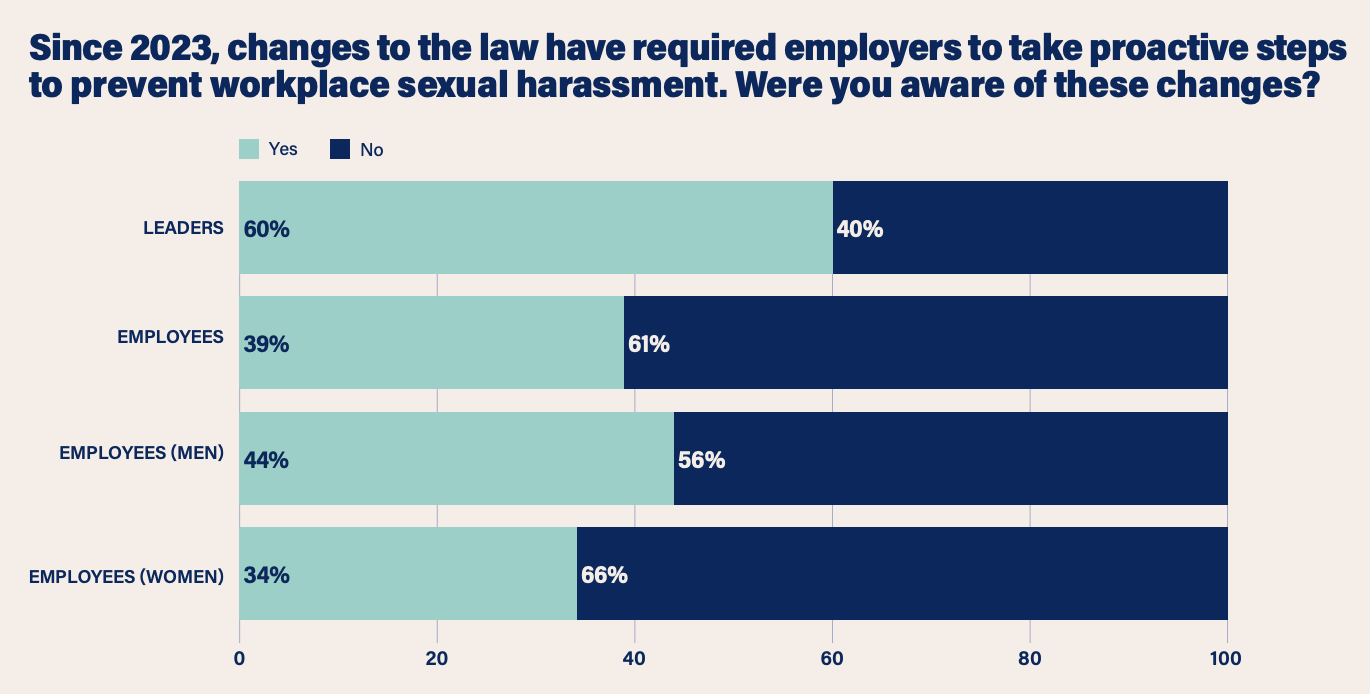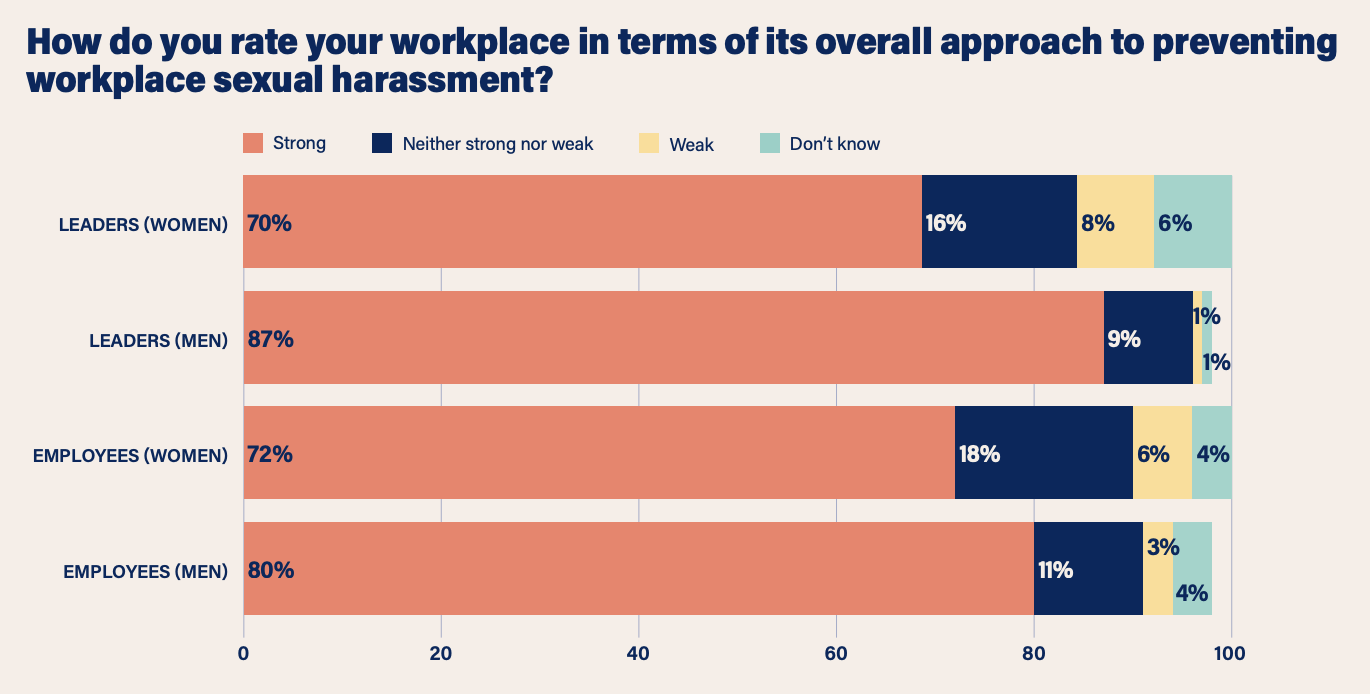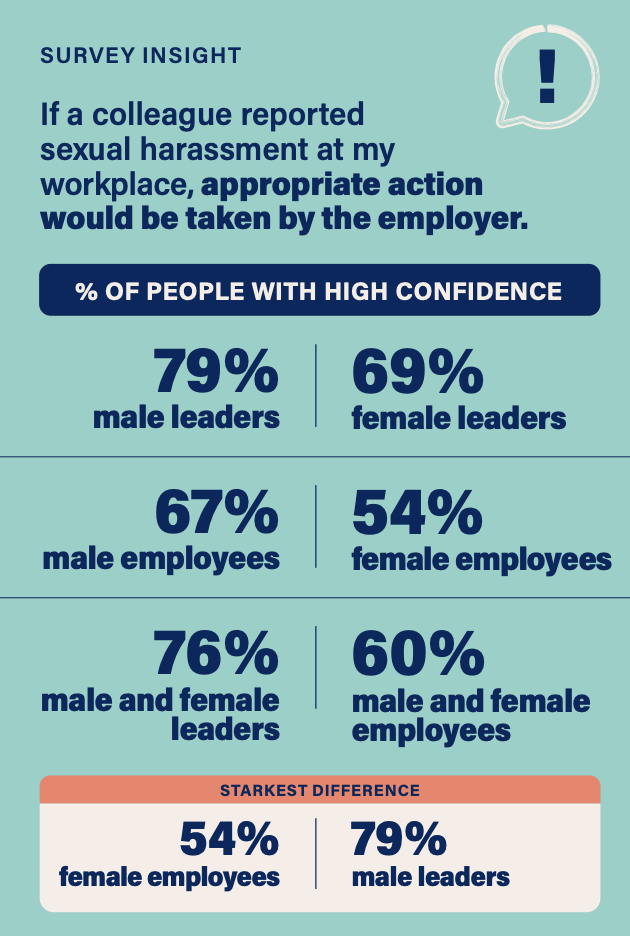
More than 6 in 10 employees also lack awareness of positive duty

A new report has revealed key gaps in workplace leaders' awareness of their new positive duty in the workplace nearly two years after it was introduced.
The "positive duty," introduced in December 2022, imposes the responsibility on employers to prevent sexual harassment in the workplace, which has been illegal for 40 years now.
Our Watch, a national violence prevention organisation, surveyed 1,500 workplace leaders and employees to determine their awareness of these new legal obligations.
It found that 40% of leaders are not aware of their new legal obligations to prevent workplace sexual harassment. This is also the case for 61% of employees.

Source: Our Watch
The positive duty was introduced into the Sex Discrimination Act 1984 in December 2022, following the recommendation by the Australian Human Rights Commission in the landmark Respect@Work: National Inquiry into Sexual Harassment in Australian Workplaces Report.
Despite this lack of awareness, the majority of the respondents feel that their organisation's overall approach to preventing workplace sexual harassment is "strong."
In fact, Our Watch found that most leaders said they are trying to set a positive example for gender equality at work (89%), and that preventing sexual harassment is a priority in their workplace (72%).
 Source: Our Watch
Source: Our Watch
Responding to cases of workplace sexual harassment, however, needs more work, according to Our Watch.
The findings revealed that only around half of female leaders (50%) and employees (48%) feel safe to report their experience of sexual harassment.
It also found that just around half of female leaders (54%) and employees (49%) feel confident that they know how to go about reporting their experience.
In terms of appropriate actions, female leaders and employees are also less likely to feel confident than their male counterparts in the belief that their employer would take appropriate action if they reported sexual harassment in the workplace.

Source: Our Watch
Our Watch CEO Patty Kinnersly reminded employers that all employees should feel safe at work, stressing that preventing workplace sexual harassment is a "key safety issue."
"When workplaces create a culture of safety and respect, business profitability increases, along with productivity and employee engagement," Kinnersly said in a statement.